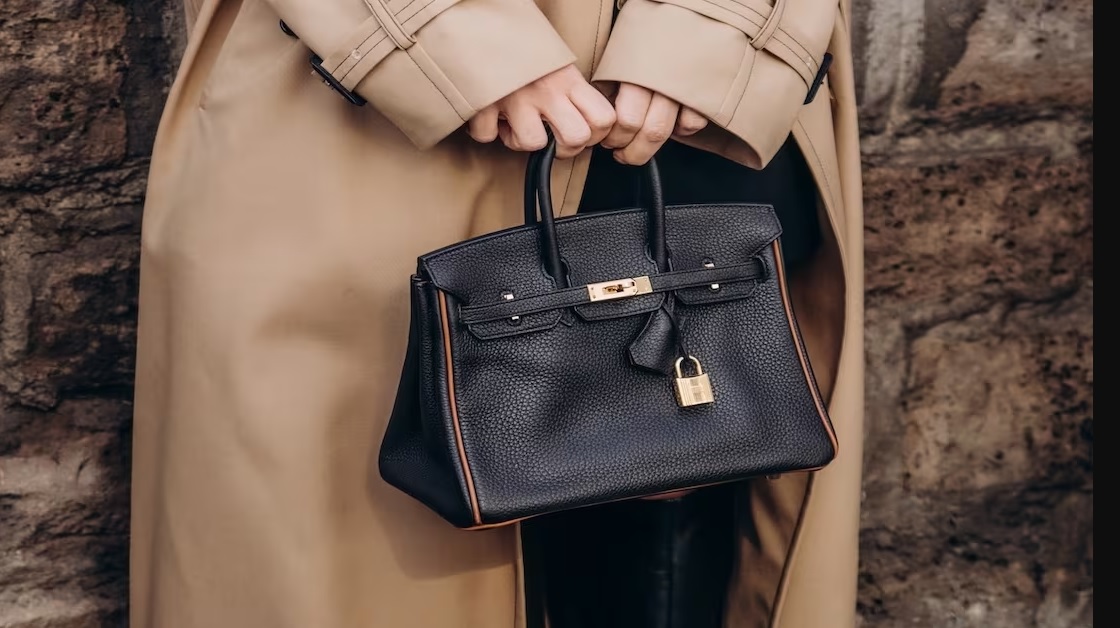
While other luxury brands struggle, Hermès continues to defy expectations, posting strong third-quarter sales growth. What's their secret? The luxury sector is facing headwinds. A downturn in China, coupled with global economic uncertainty, has seen many prominent brands falter. Yet, amidst this turbulence, Hermès stands tall. The French maison, renowned for its iconic Birkin bags, reported an 11.3 per cent rise in third-quarter sales, reaching €3.7 billion. This performance significantly outshines rivals like LVMH, which missed expectations and Kering, which issued a profit warning.
Hermès thrives while others struggle
Hermès 11.3 per cent rise in Q3 sales, exceeded analyst expectations. This strong performance is a testament to the brand's enduring appeal, particularly amongst its ultra-wealthy clientele. In stark contrast, industry giants like LVMH and Kering are grappling with declining sales and dwindling consumer confidence, particularly in China. LVMH missed revenue expectations, while Kering issued a profit warning, highlighting the depth of the challenges facing the sector.
Table: Q3 sales growth top luxury brands
|
Brand |
Q3 Sales Growth (%) |
Stock Performance (YTD) |
|
Hermès |
11.3 |
+9% |
|
LVMH |
Missed expectations |
-15% |
|
Kering (Gucci) |
Operating income to halve |
-40% |
|
Moncler |
-3.30% |
There are several reasons for Hermès' remarkable resilience. First and foremost is its exclusivity and timeless appeal. Hermès's meticulously crafted products, like the iconic Birkin bag, are synonymous with exclusivity and timeless elegance. This enduring appeal ensures consistent demand, even during economic downturns. Furthermore, Hermès' classic designs transcend fleeting trends, ensuring enduring appeal.
Its strategic price positioning is another reason. Hermès caters to an ultra-high-net-worth clientele, a segment less susceptible to economic fluctuations. Their products, often considered investment pieces, retain value and desirability. While ‘aspirational’ buyers might be pulling back, Hermès' core customer base remains strong. Then there is the whole aspect of controlled production and scarcity as Hermès maintains strict control over production, creating an aura of scarcity and desirability. This strategy fuels demand and reinforces the brand's exclusive image. While renowned for its handbags, Hermès boasts of a diverse product offering spanning silk scarves, jewelry, ready-to-wear, and homeware. This diversification cushions the impact of slowing demand in specific categories.
Its focus on heritage and craftsmanship is another factor contributing to growth Hermès emphasizes its rich heritage and artisanal craftsmanship. This commitment to quality and tradition resonates with discerning consumers seeking enduring value. And despite the slowdown in China, Hermès continues to invest in the market, demonstrating long-term confidence in its growth potential. The recent opening of a store in Shenzhen and plans for a Beijing flagship demonstrates the brand's long-term commitment.
Interestingly, LVMH, the world's largest luxury conglomerate, felt the pinch of declining Chinese consumer confidence. Its fashion and leather goods division, home to Louis Vuitton and Dior, experienced a slowdown. In contrast, Hermès, with its focus on exclusivity and high-net-worth individuals, weathered the storm more effectively. This divergence highlights the power of Hermès' strategic positioning.
Lessons for other brands
The Hermès story offers valuable lessons for other luxury brands navigating the current turbulent landscape.
Cultivate brand heritage and craftsmanship: A strong brand heritage and a commitment to quality craftsmanship can create lasting appeal and customer loyalty.
Embrace exclusivity and scarcity: Strategic control over production and distribution can enhance brand desirability and maintain price integrity.
Focus on High-Net-Worth Individuals: Catering to a less price-sensitive clientele can provide a buffer against economic downturns.
Invest strategically: Maintaining a long-term vision and investing in key markets, even during challenging times, can ensure future growth.
Hermès' continued success amidst a challenging market underscores the power of a strong brand, strategic pricing, and a focus on exclusivity. As other luxury brands grapple with declining sales, Hermès serves as a shining example of resilience and adaptability in the face of adversity.












